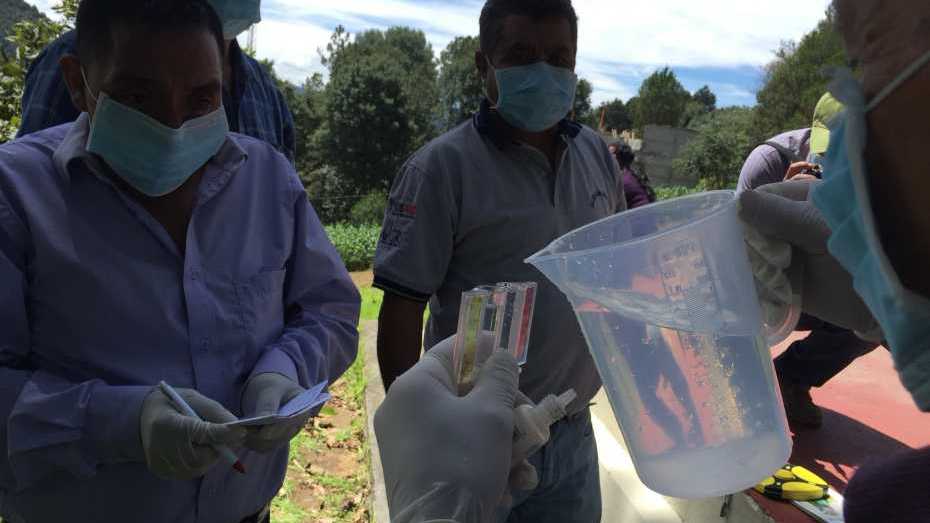Chlorination Intervention for Rural Supplies

Contact: external page Dr. Sara Marks
external page Department Sanitation, Water and Solid Waste for Development, EAWAG
Partner: external page Helvetas Guatemala
Focus country: Guatemala
Delivering safe drinking water remains a global challenge, particularly in remote rural areas. Existing water treatment methods often fail due to their reliance on sustained behaviour change, difficulties with repairing or replacing parts, and a lack of local material supply chains. Low-cost in-line chlorination technologies have great potential for achieving sustained treatment of small rural drinking water systems. However, little evidence exists on the effectiveness of these novel chlorination technologies installed at the system level, particularly in a rural context.
The project aims to systematically evaluate the applicability of a locally constructed in-line chlorination device designed by Helvetas Swiss Intercooperation in the Lake Atitlán region of Guatemala. The project uses a mixed-methods approach, consisting of a controlled before-after community-level assessment and an interrupted time series analysis in four communities. The study evaluates the technical and cost performance of the chlorination device, water users’ acceptance and satisfaction with their water service, system management practices, and child health status.